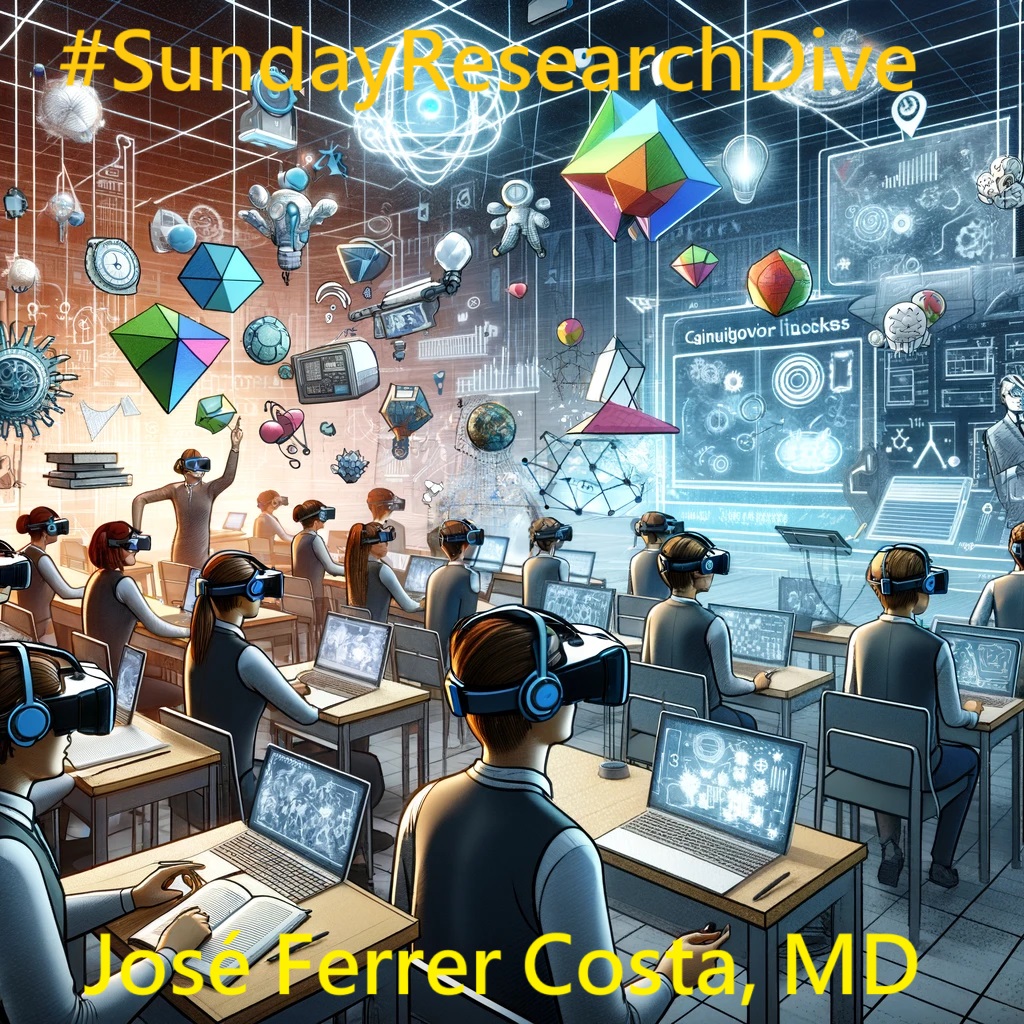
Today’s dive reviews “Cognitive Effort during Visuospatial Problem Solving in Physical Real World, on Computer Screen, and in Virtual Reality” by Raimundo da Silva Soares Jr. et al. This study stands at the intersection of cognitive science and neuroergonomics by examining how different settings influence cognitive workload during visuospatial tasks.
🔗 Dive deeper into the study here: https://pubmed.ncbi.nlm.nih.gov/38339693/
🚀 Study Overview:
- Neuroergonomics Approach: Anchored in neuroergonomics, the study aims to elucidate the neural mechanisms involved in cognitive workload across various visualization mediums (VR, computer screen, physical real-world), employing functional near-infrared spectroscopy (fNIRS) for objective measurements by monitoring neural efficiency in the prefrontal cortex (PFC).
- The study utilized an Oculus Rift headset for the VR tasks, with Cubism VR software version 1.6.1 to present visuospatial puzzles. Participants’ hand movements were tracked, allowing for an immersive interaction with the tasks across all mediums.
- Progressive Task Complexity: The study’s multimodal approach, allowing for progressively increasing task complexity, supports the idea that VR can maintain a challenging yet manageable cognitive workload throughout spatial cognition training.
💡 Key Insights:
- VR Advantages: Results indicate VR’s superiority in facilitating visuospatial tasks, demonstrating enhanced precision and reduced cognitive strain compared to traditional methods.
- Implications for Training: The immersive qualities of VR hold significant promise for spatial skills training, making complex learning experiences more accessible and less strenuous.
🧐 Critical Overview:
- Safety and Efficacy: While VR emerges as a potent educational tool, the study’s doesn´t consider VR´s potential safety concerns or side-effects warrants attention, especially considering its application among diverse and potentially sensitive learner groups.
- Research Scope and Diversity: The limited sample size raises questions about the findings’ applicability. Future studies should aim for a more diverse cohort to validate the efficacy of VR in educational settings across a wider audience.
- Balancing Cognitive Load: Effective learning requires engaging content that also presents the right level of challenge to foster cognitive growth. The study’s alignment with constructivism-based learning theories underscores the nuanced approach VR takes to balance cognitive load. By making challenging content more approachable, VR not only maintains learner engagement but also fosters the development of new knowledge without overwhelming the learners.
- Progressive Learning: The idea of using VR to build foundational skills and gradually transitioning to more challenging real-world tasks represents a strategic approach to education. This method ensures a continuous and effective learning process, catering to the progressive development of spatial cognition skills.
- Practical Applications in Education: While the study showcases VR’s potential in spatial cognition training, the exploration of practical applications in real-life educational settings remains an area for further development. Future research should aim to translate these findings into actionable strategies for educators, potentially revolutionizing how spatial reasoning is taught across disciplines.
🚀 Looking Forward:
As we see our society going deeper into an era defined by digitalization, the integration of VR into educational frameworks represents more than innovation; it’s a necessary evolution. The study highlights VR’s adeptness in balancing cognitive load, a crucial aspect as we align learning methodologies with the demands of digital spatial computing. This is not just about adapting to new technologies; it’s about preparing learners for a future where spatial skills become increasingly critical in navigating both digital and real-world environments.
Incorporating VR in education thus becomes crucial in preparing students for the complexities of a future where digital spatial skills are not just advantageous but essential for success.
#Education #VR #CognitiveLoad #SpatialSkills #Neuroergonomics


